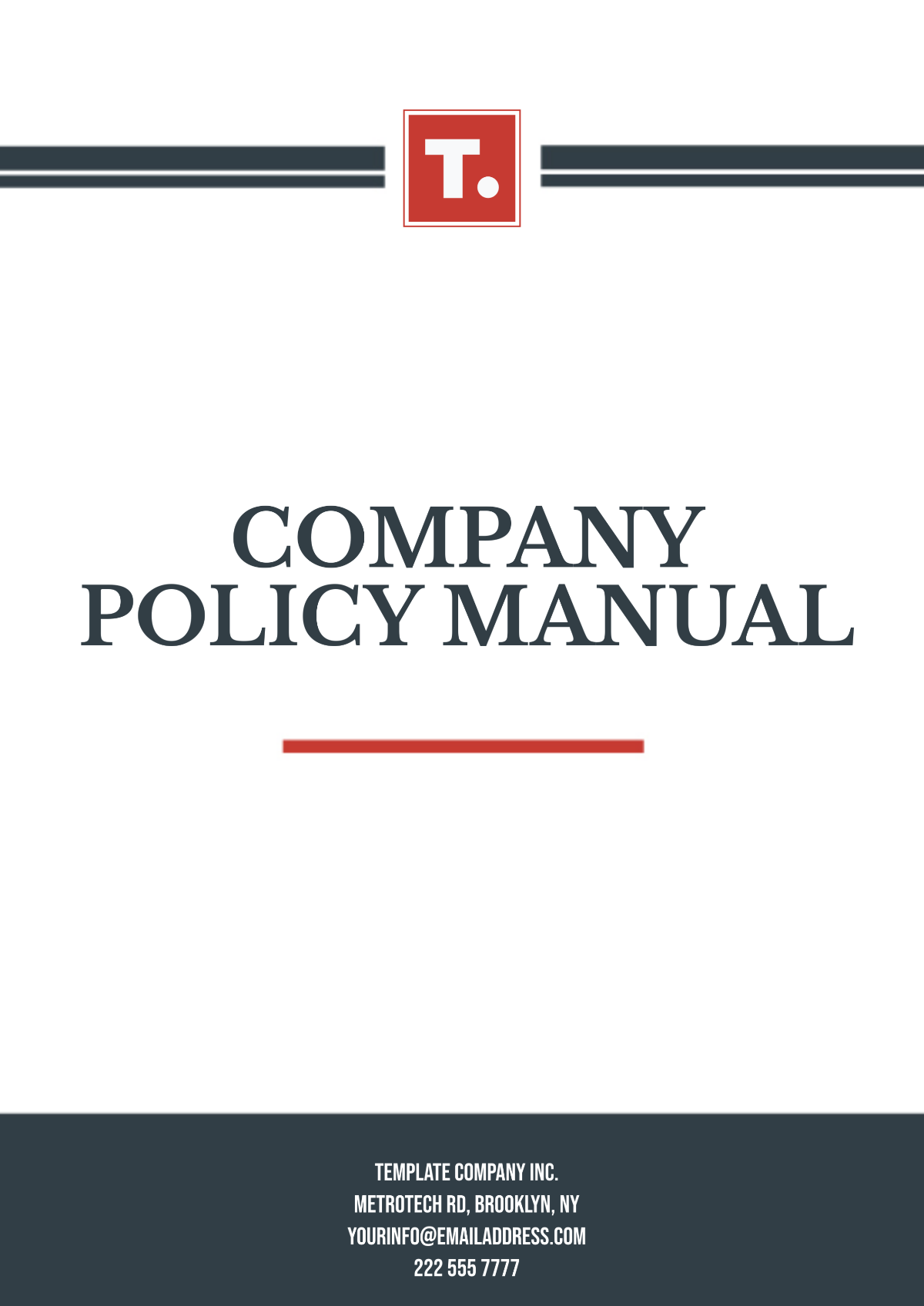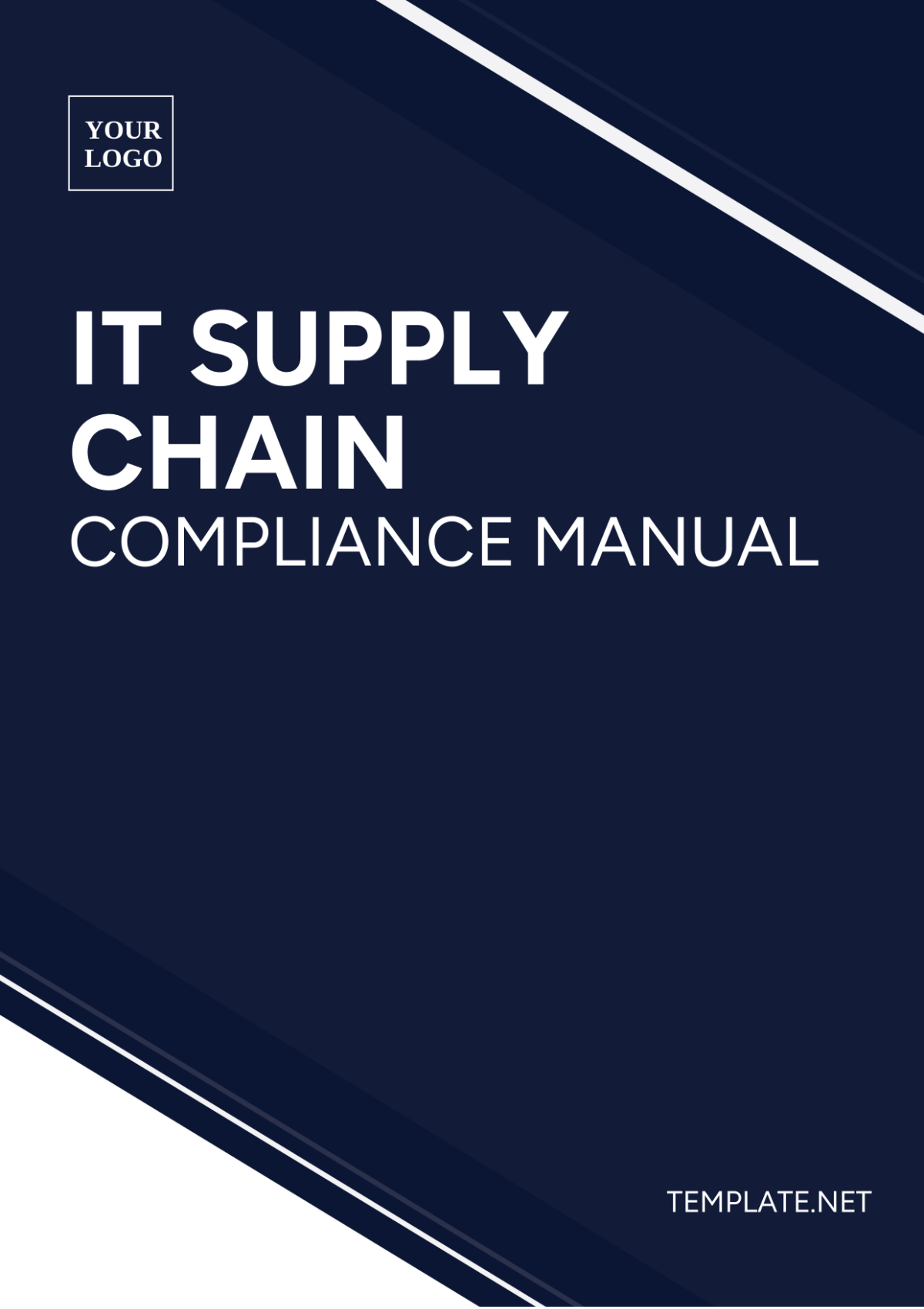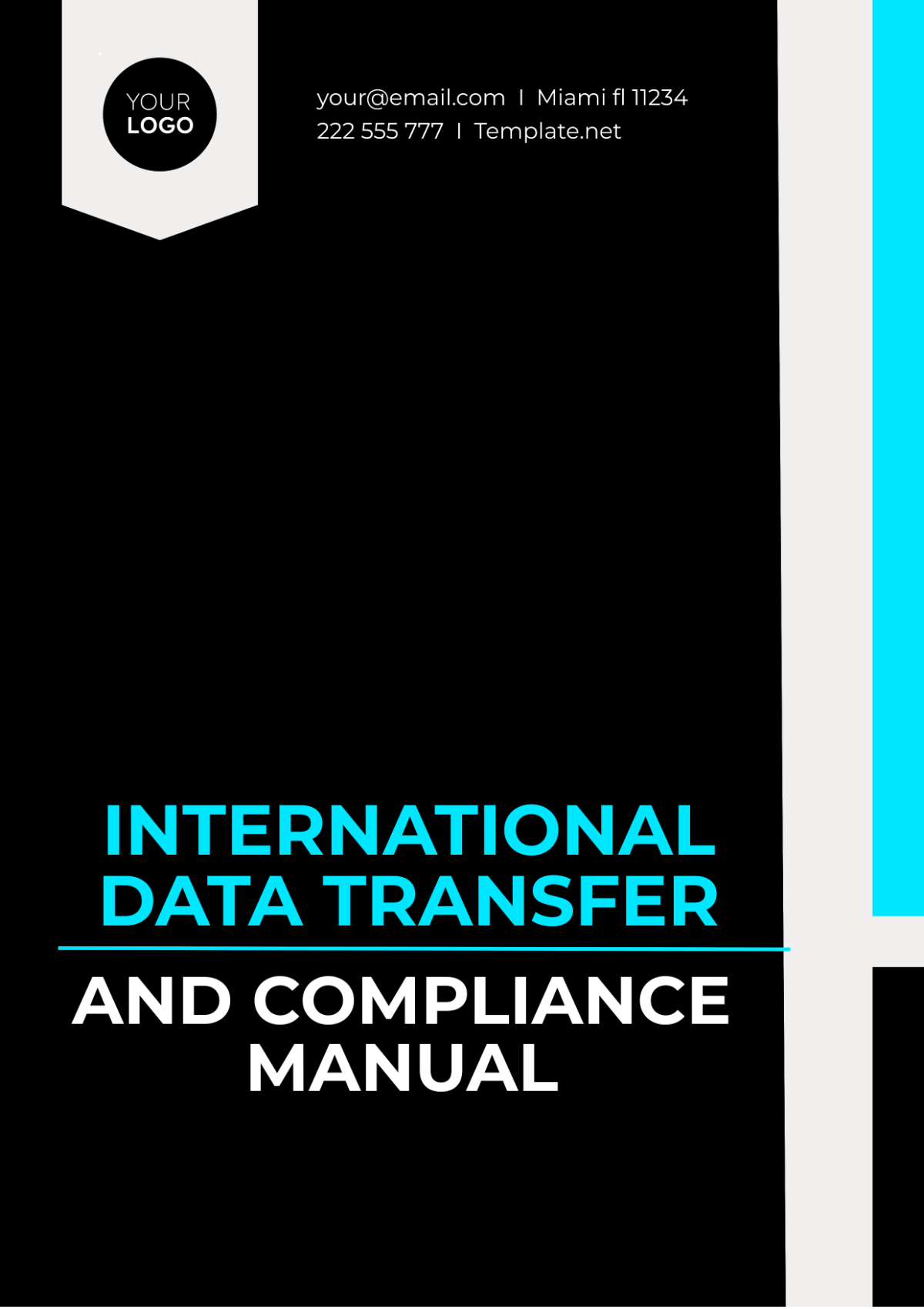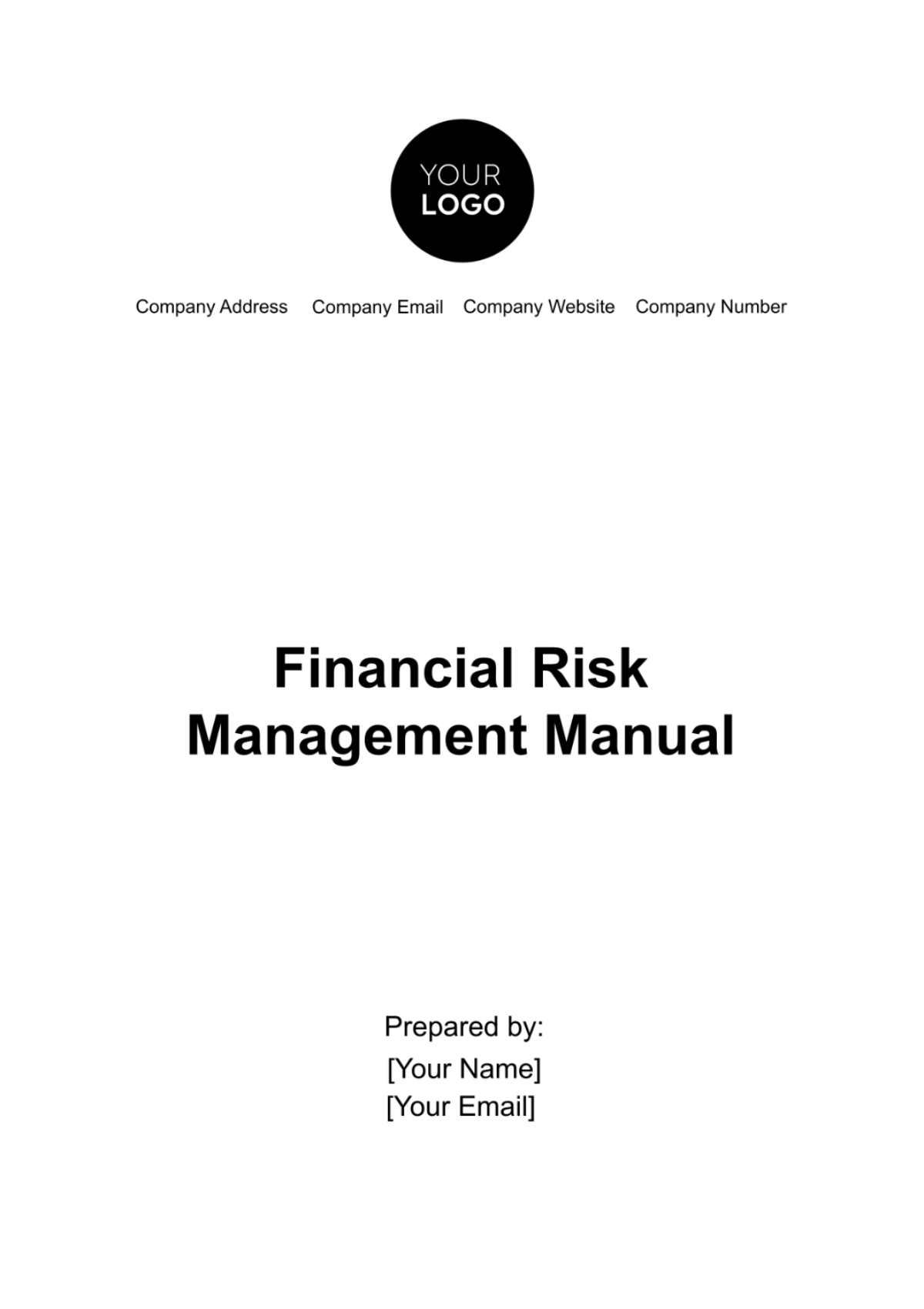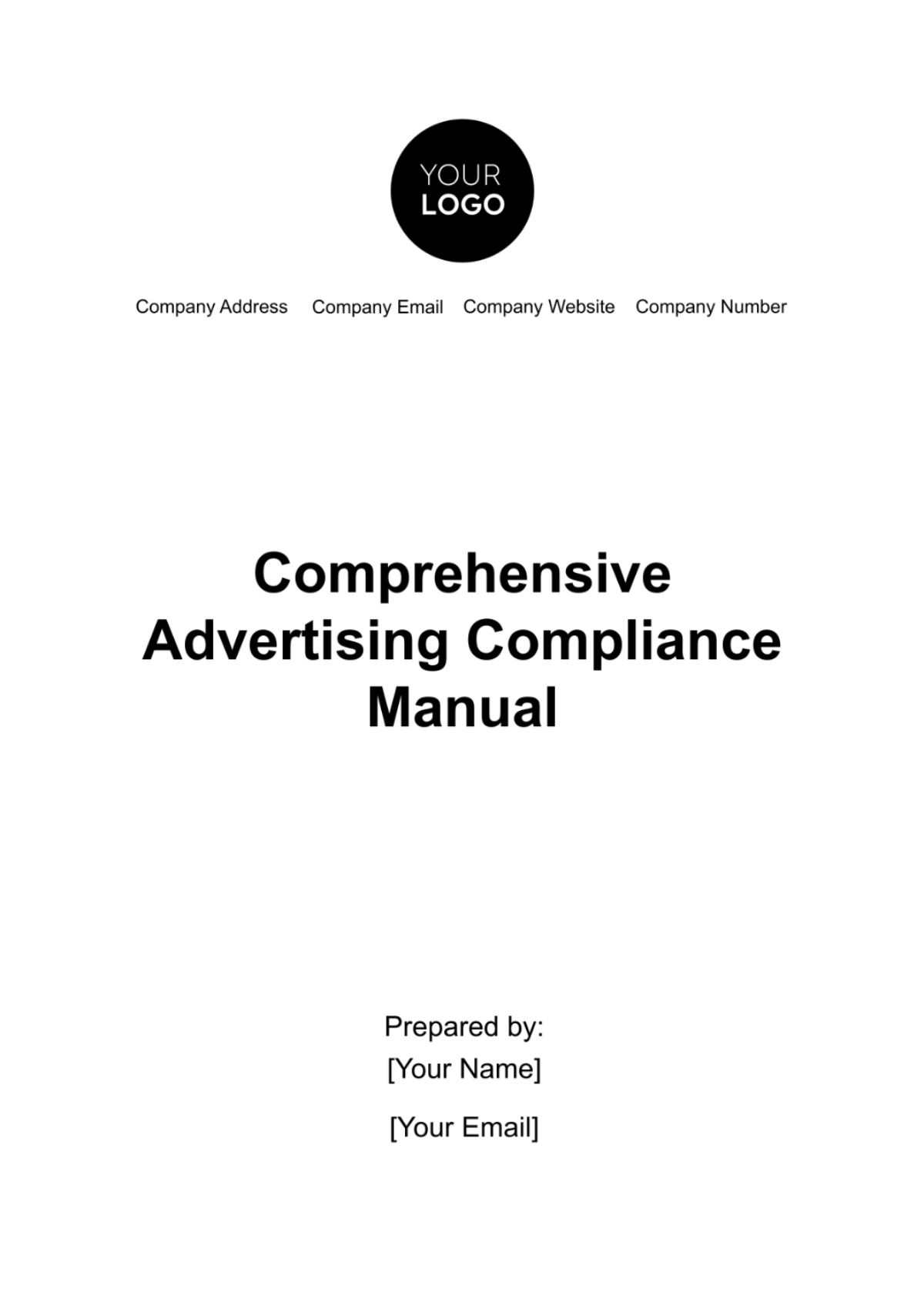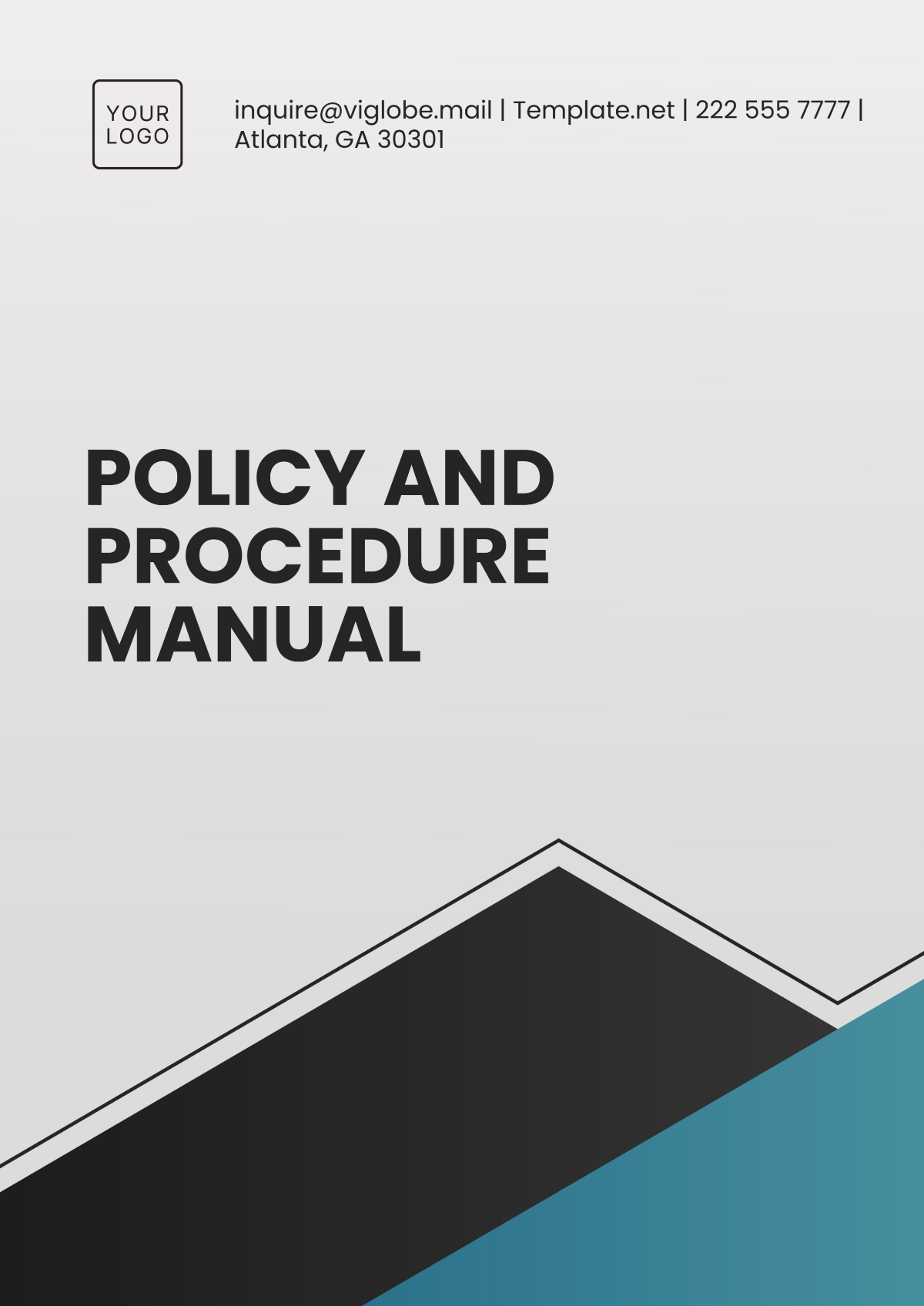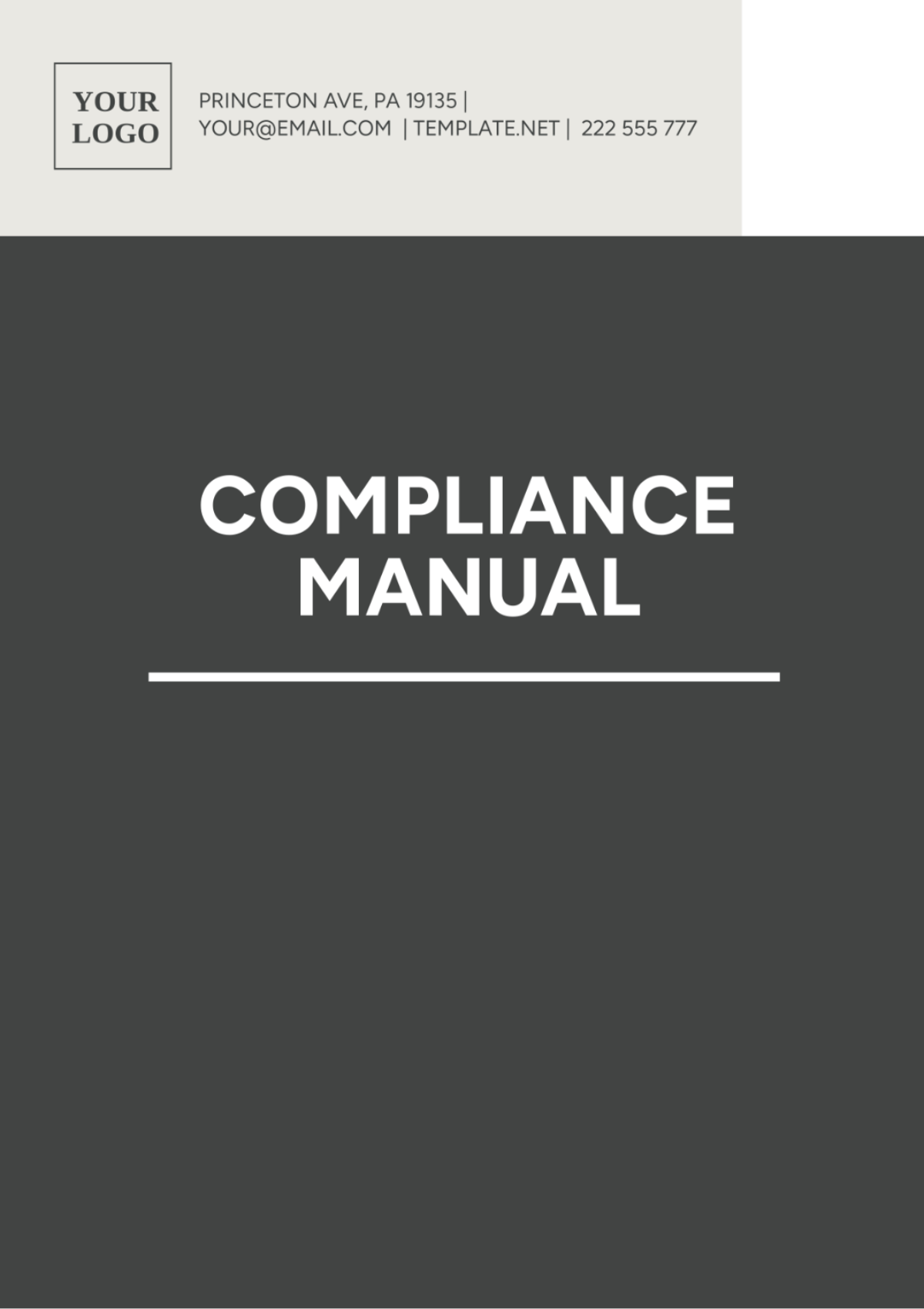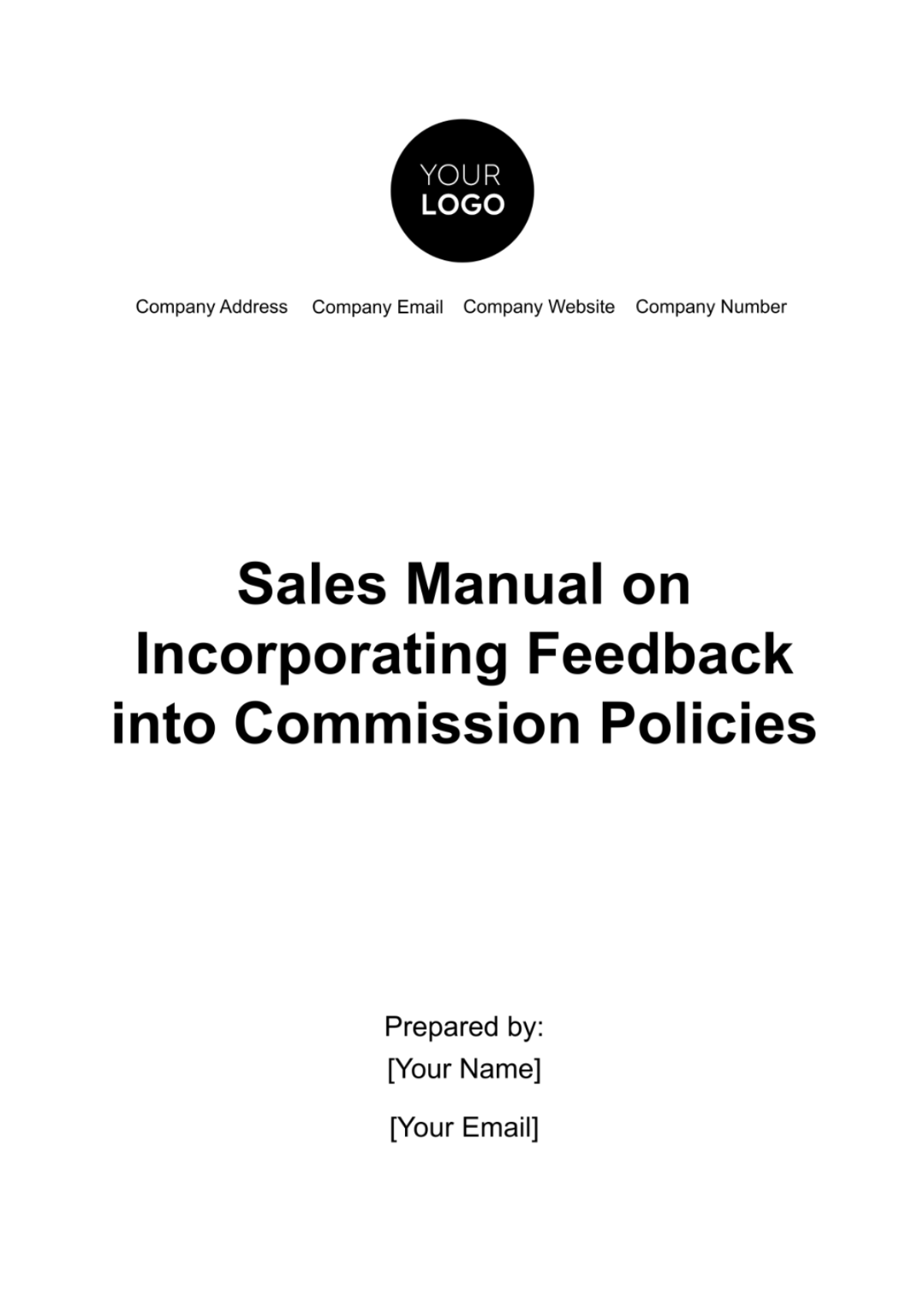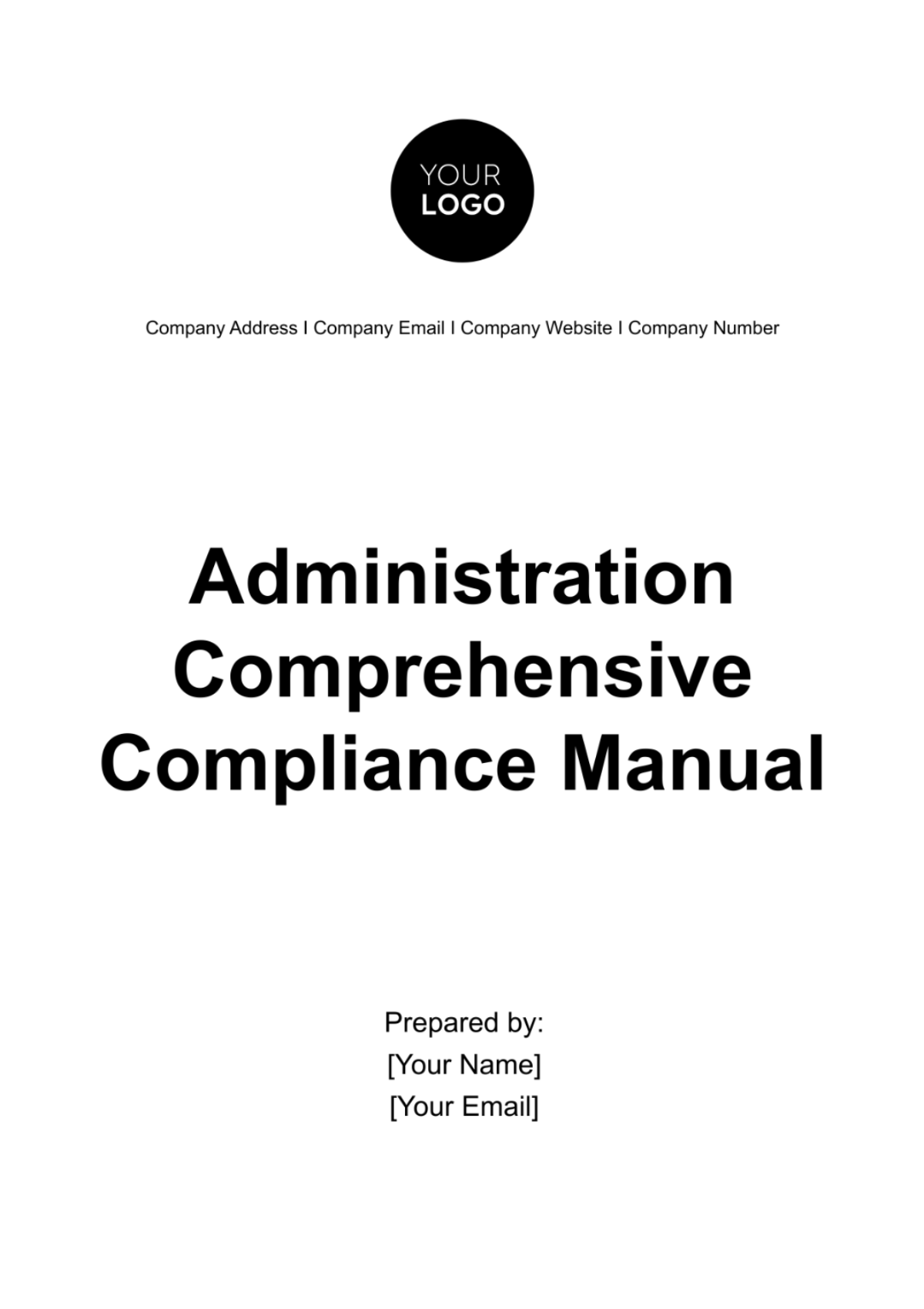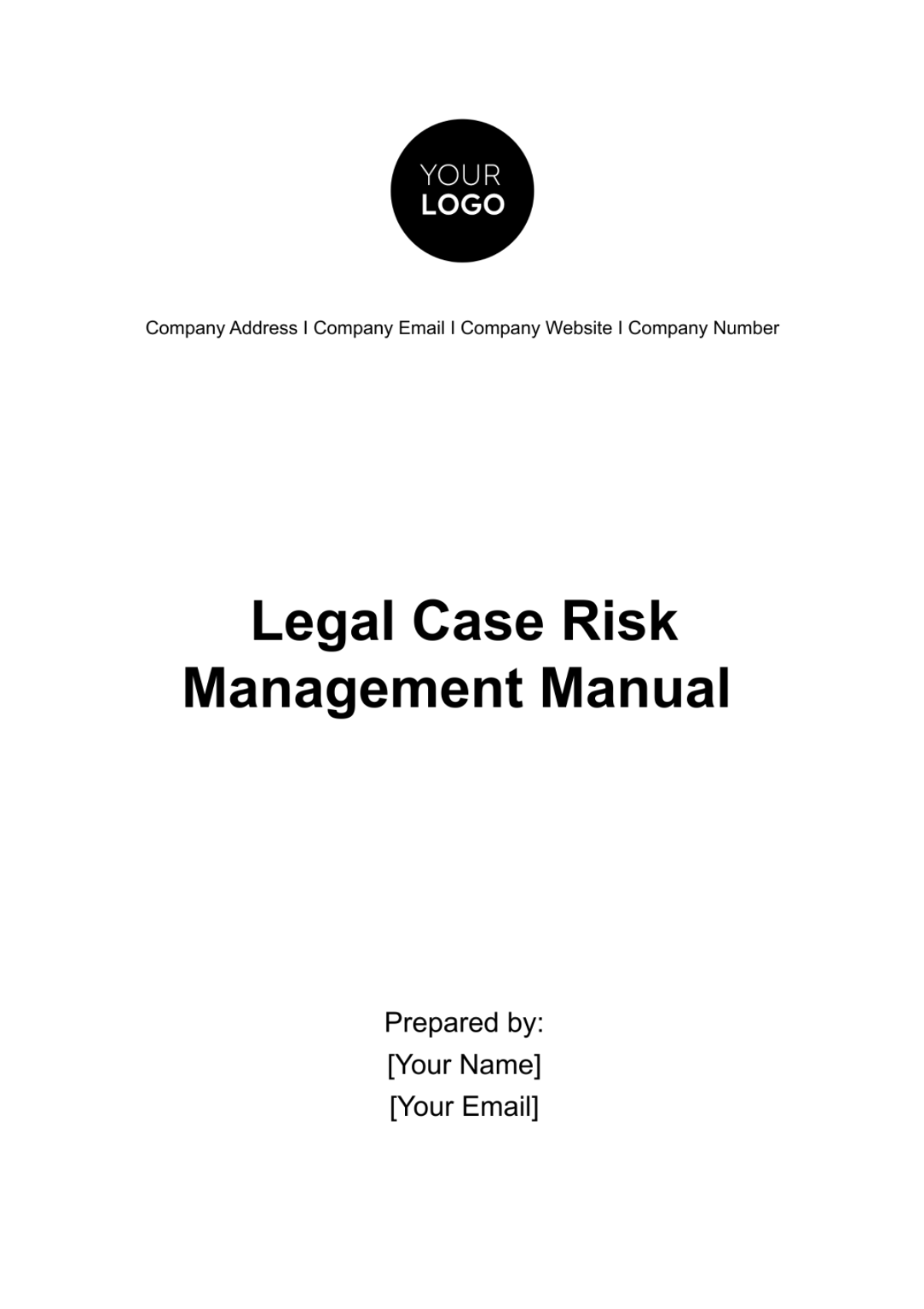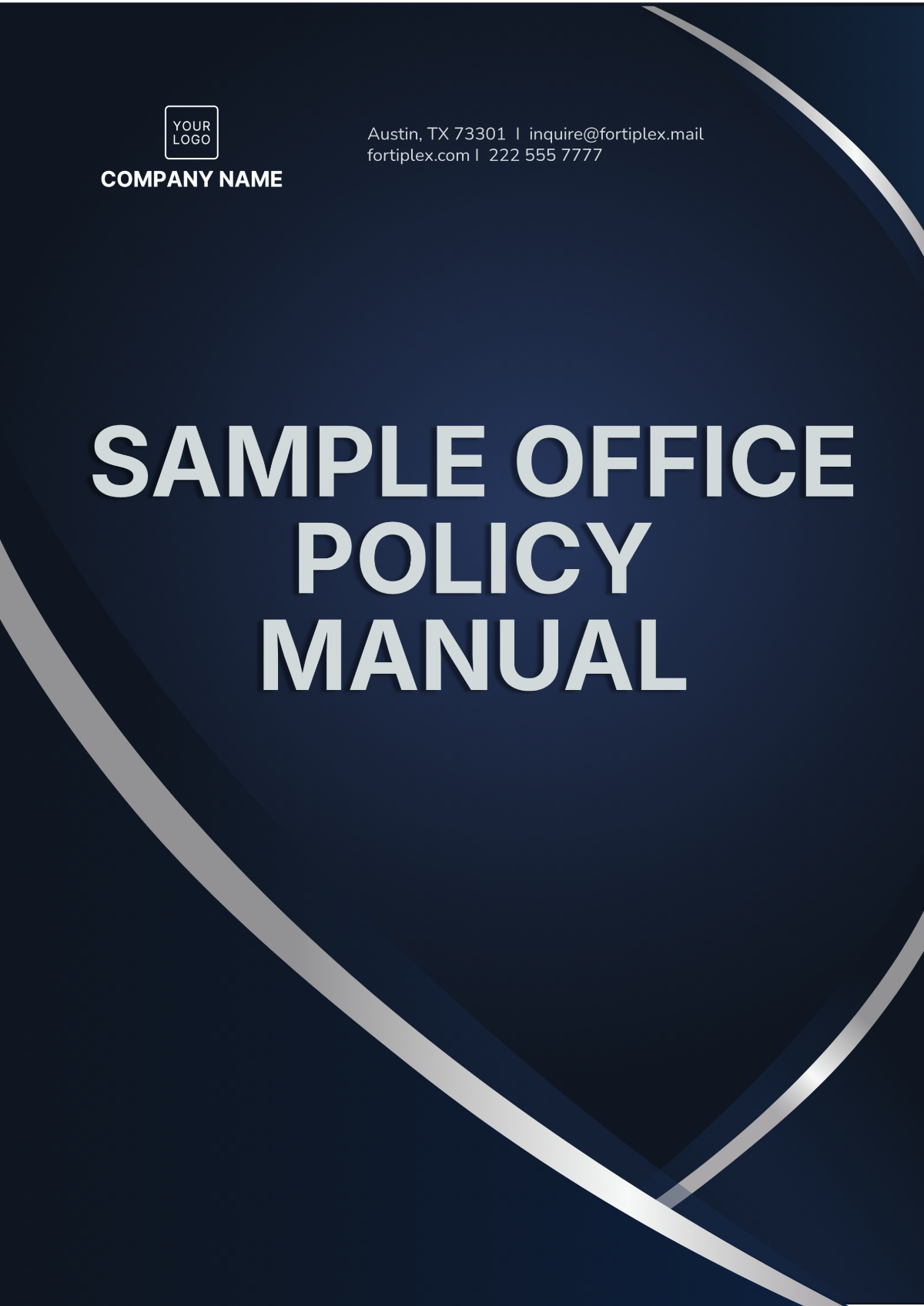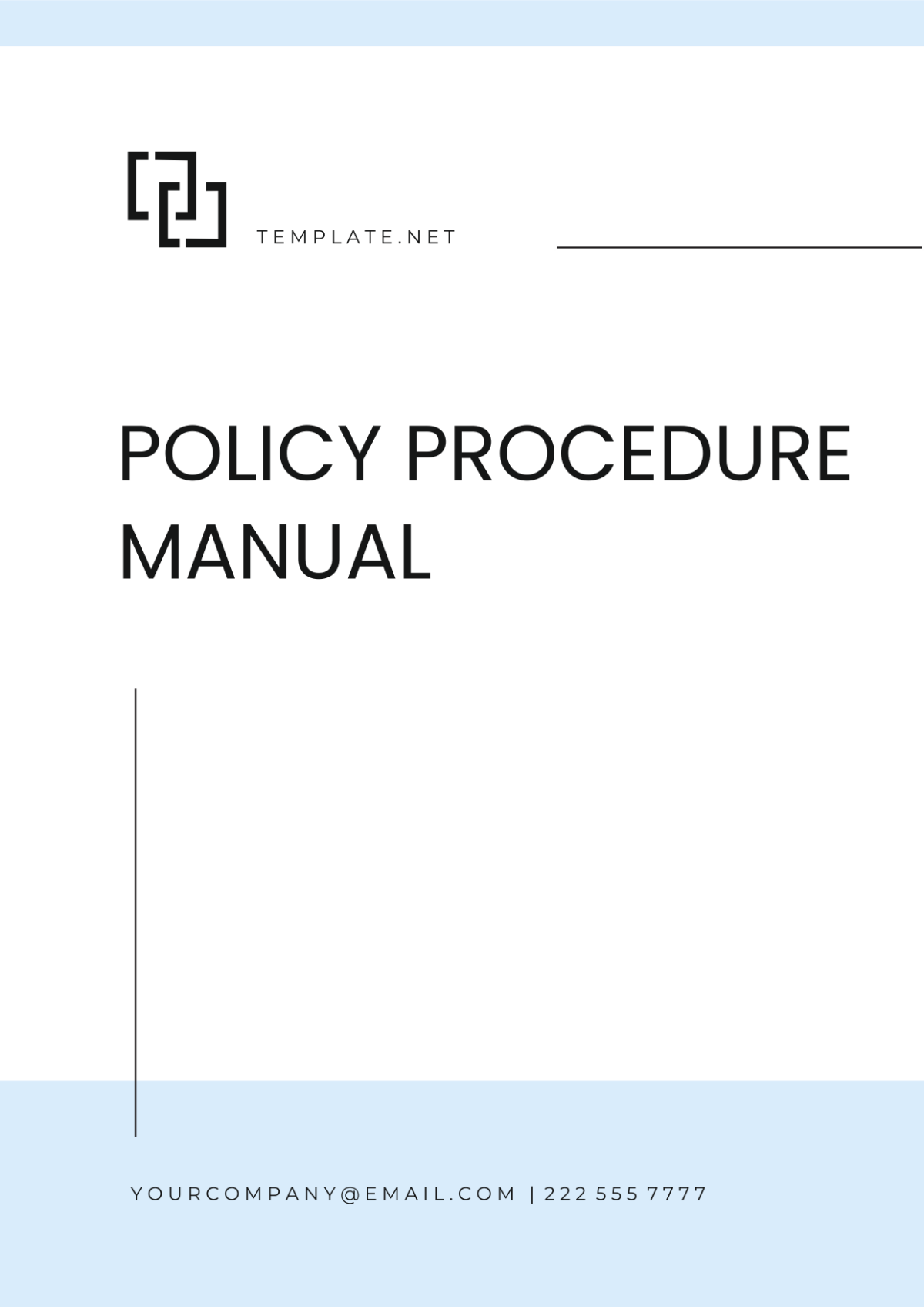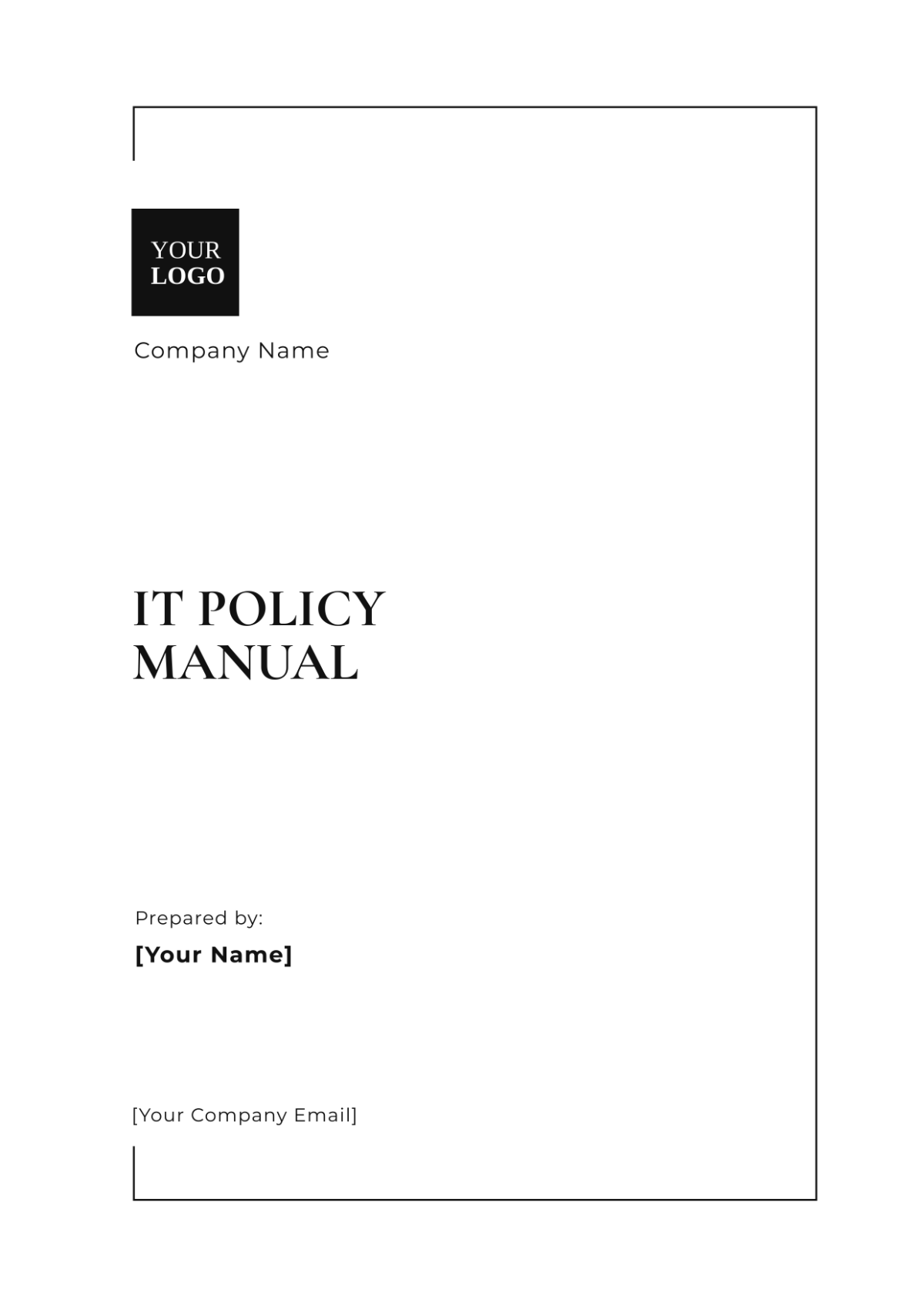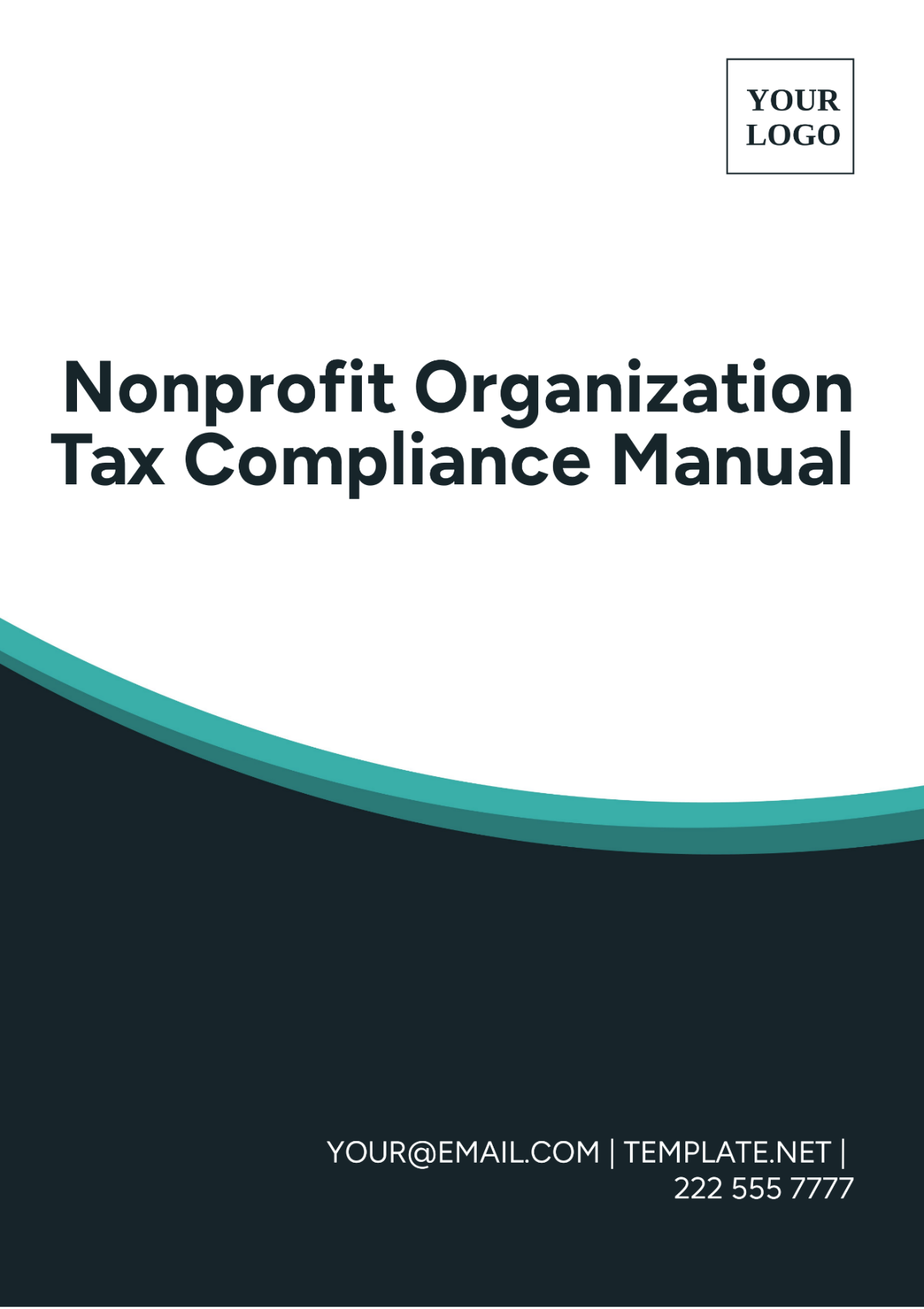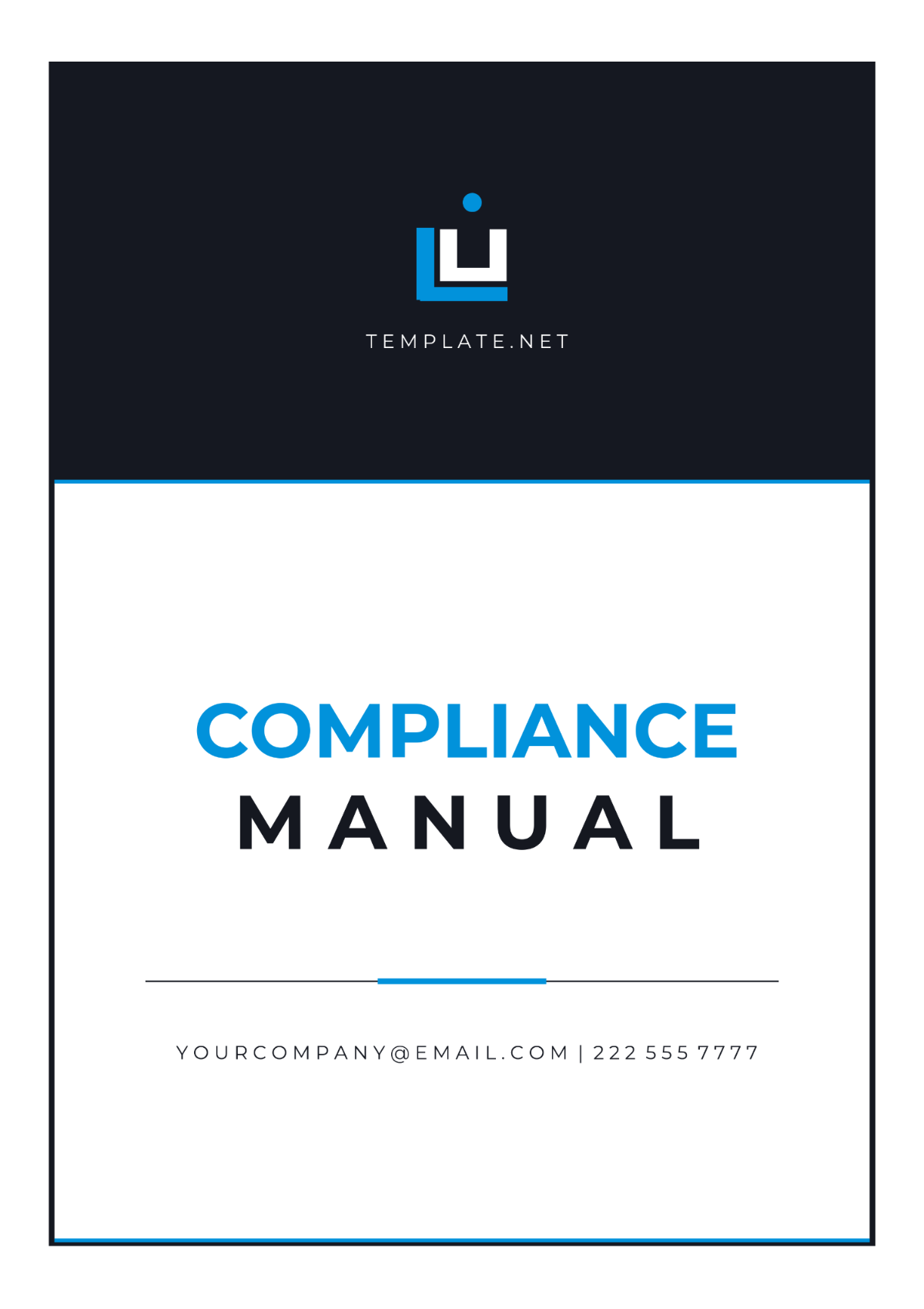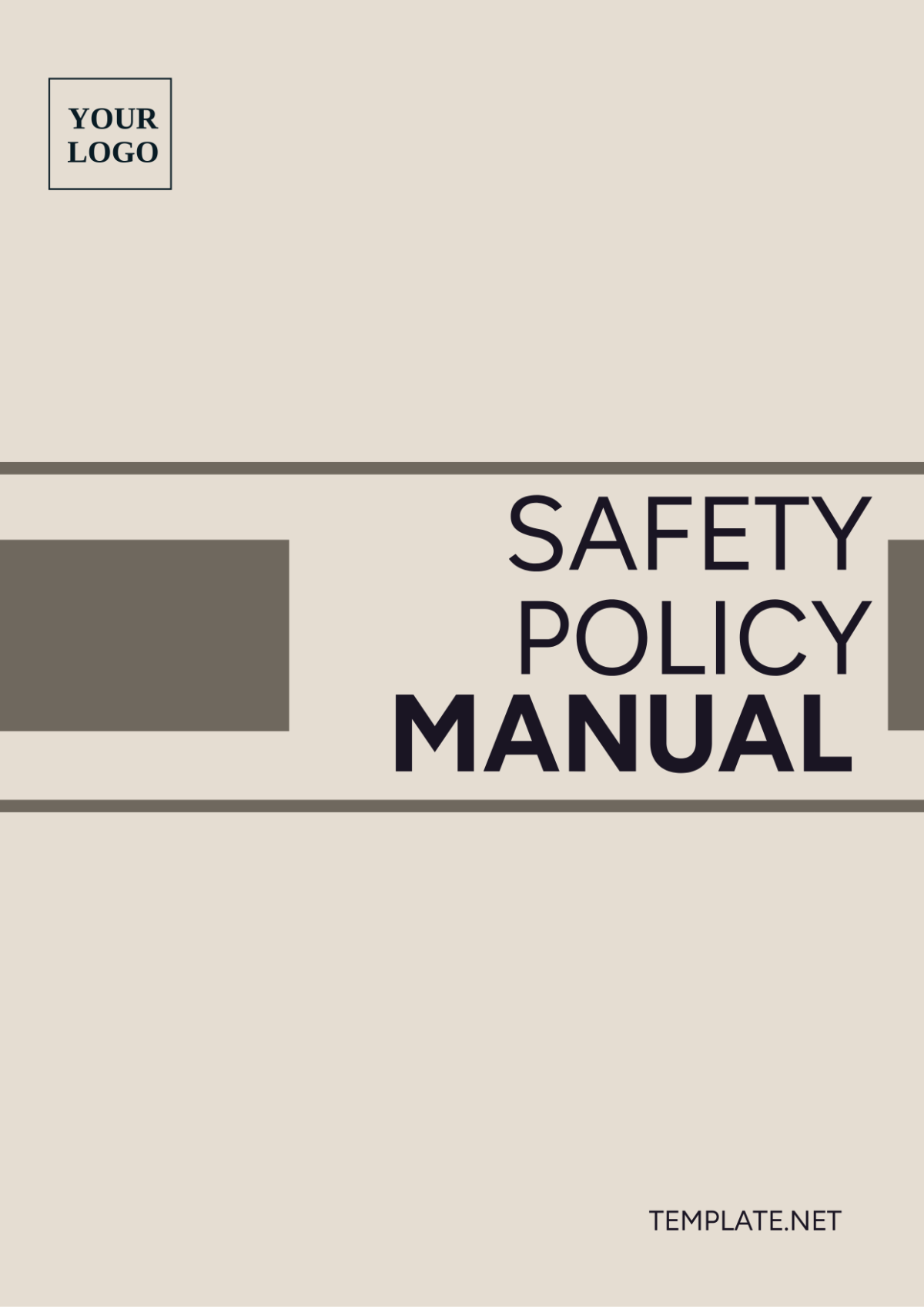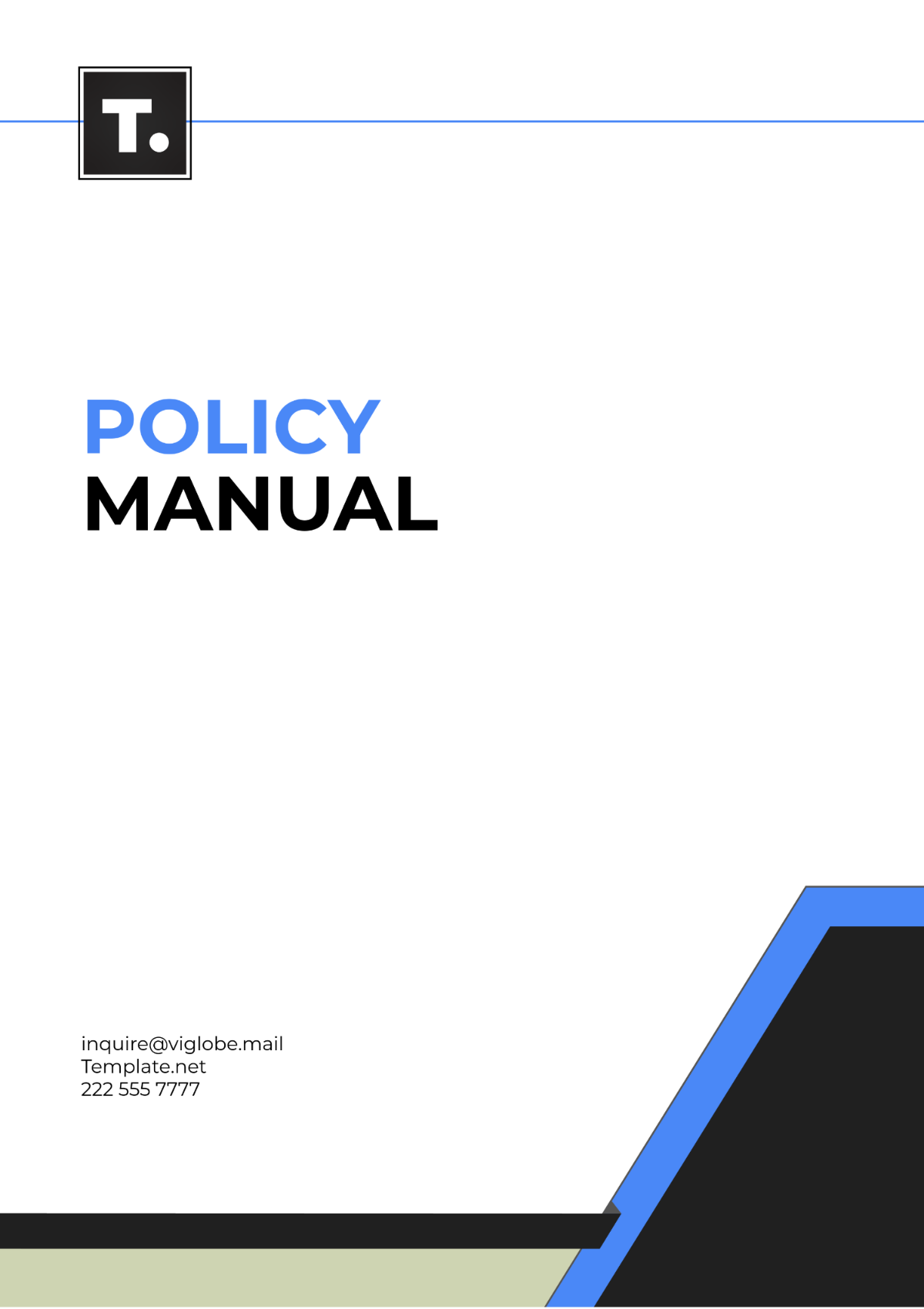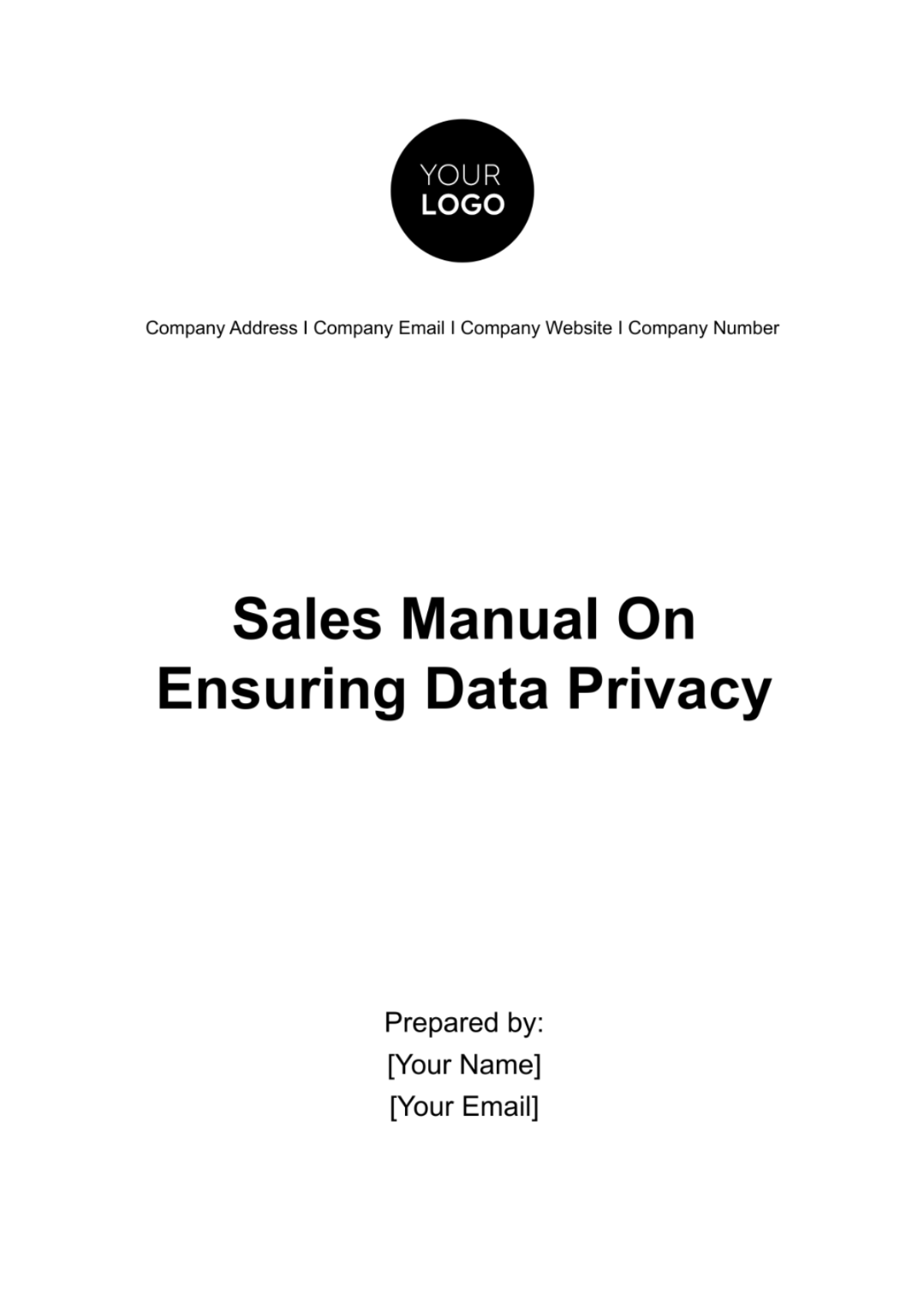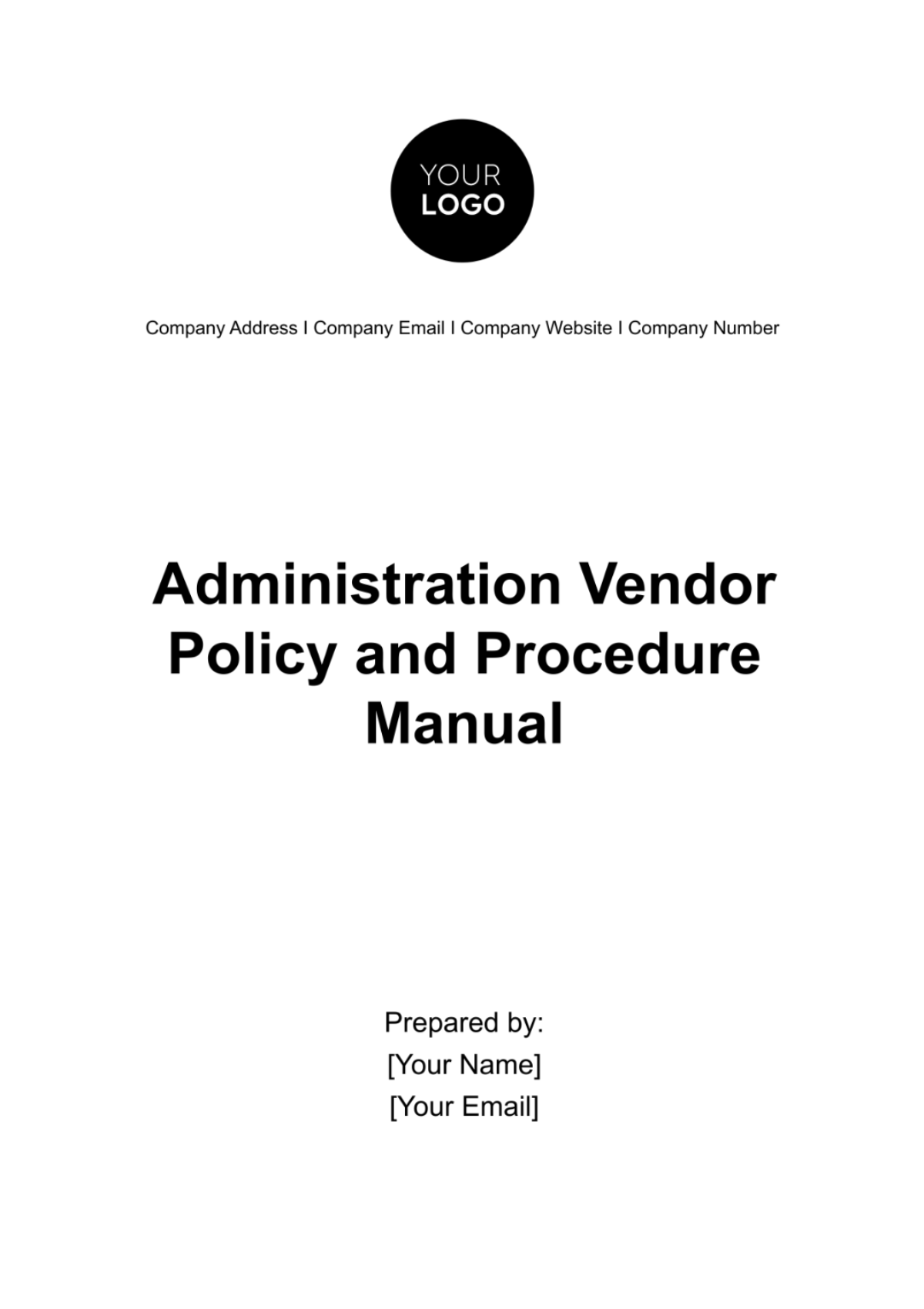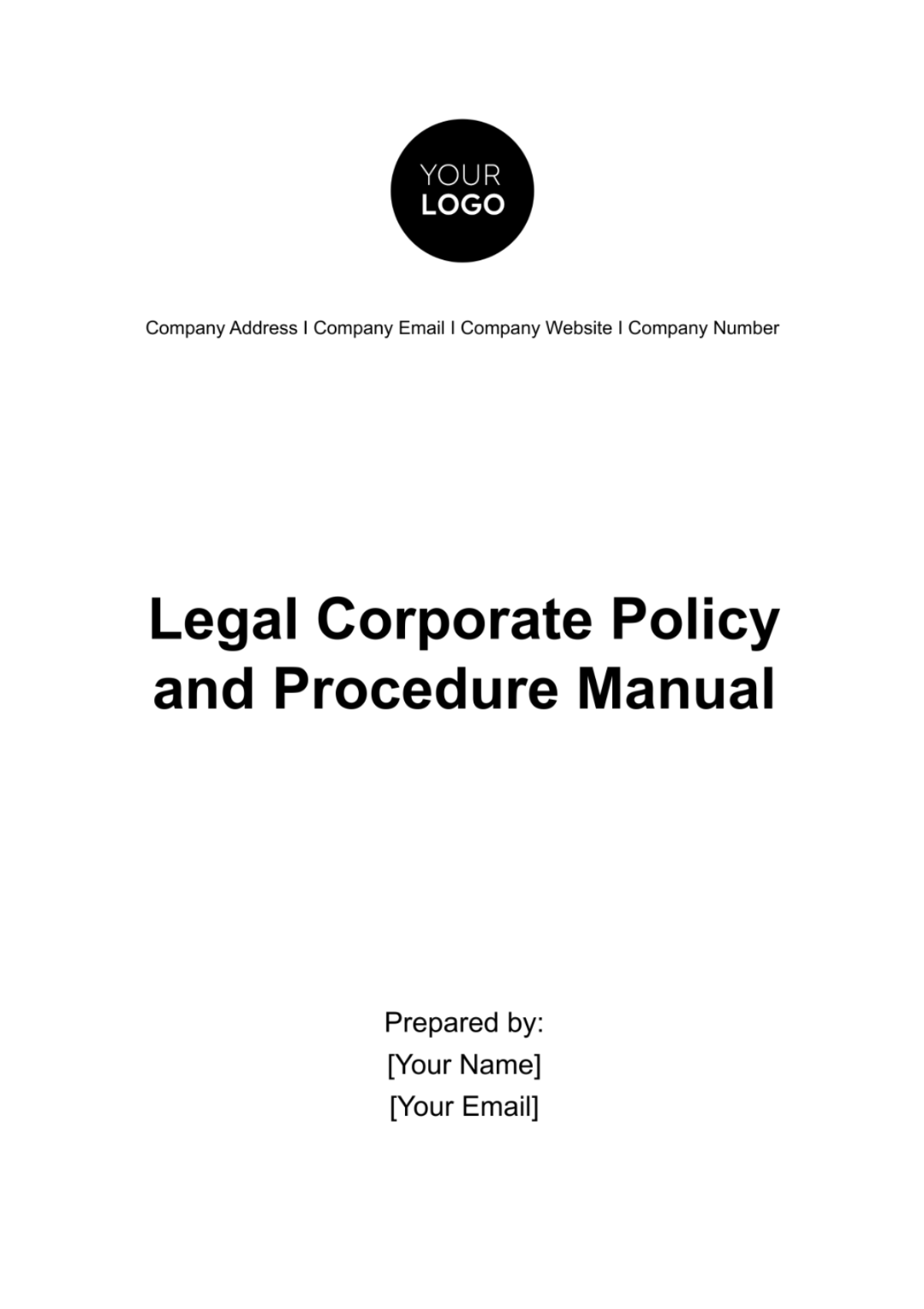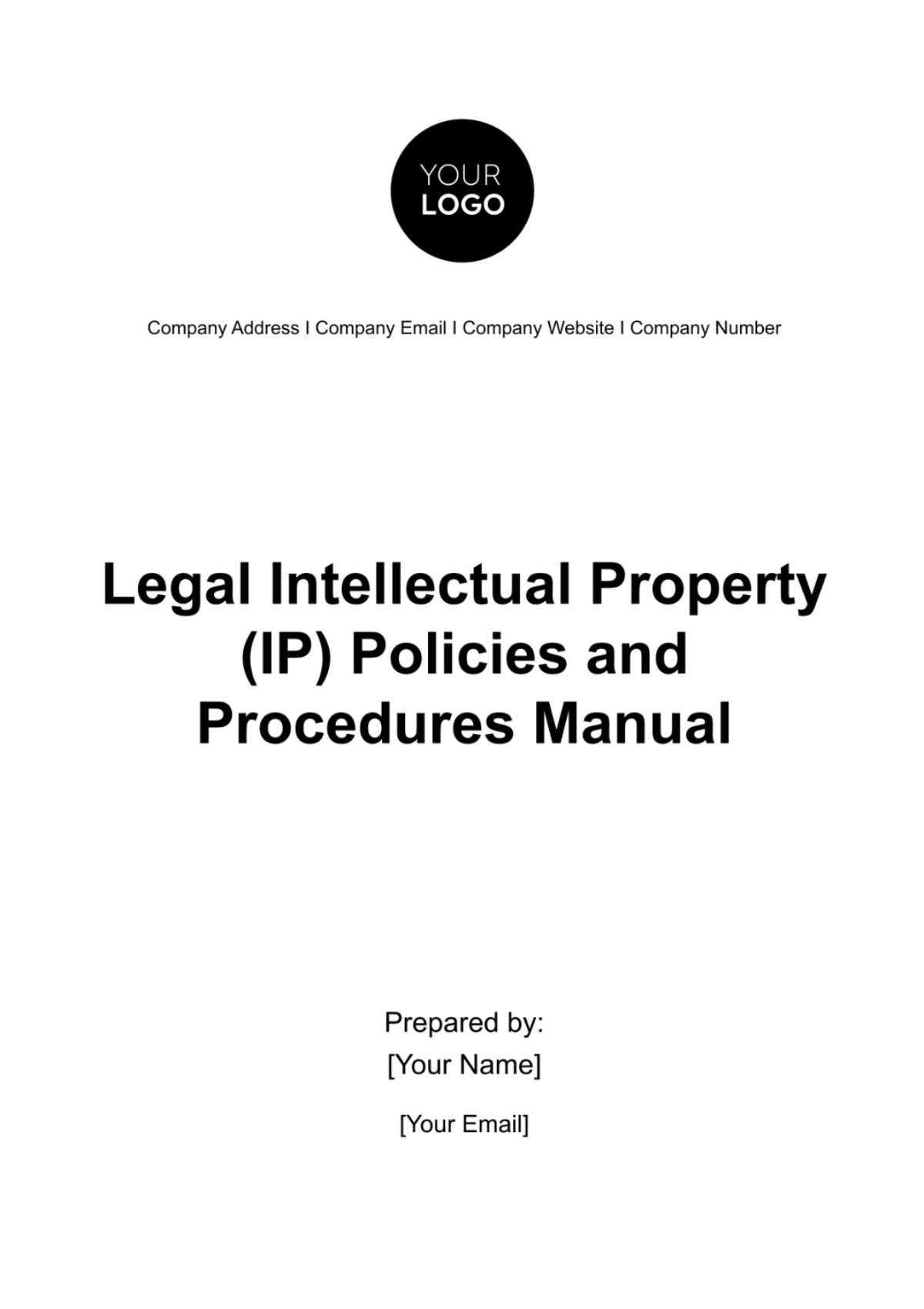Sales Manual On Ensuring Data Privacy
I. Introduction to Ensuring Data Privacy Sales Manual
A. Overview
Purpose of the Sales Manual
The purpose of this Sales Manual is to equip sales professionals at [Your Company Name] with the necessary knowledge and guidelines to effectively sell products and services while upholding the highest standards of data privacy for our customers. It aims to ensure that all sales activities are conducted in compliance with relevant data privacy regulations and best practices.
Importance of Data Privacy in Sales
In today's interconnected digital landscape, data privacy has emerged as a critical concern for individuals and organizations alike. With the proliferation of data breaches and increased regulatory scrutiny, customers are increasingly vigilant about how their personal information is collected, processed, and stored. Therefore, maintaining robust data privacy practices is not only essential for building and preserving customer trust but also for complying with stringent regulatory requirements such as the General Data Protection Regulation (GDPR), California Consumer Privacy Act (CCPA), and others.
B. Scope
This Sales Manual encompasses various aspects related to ensuring data privacy in sales processes, including:
Understanding the key principles of data privacy regulations such as GDPR and CCPA.
Integrating data privacy considerations into sales strategies and tactics.
Safeguarding customer data throughout the sales lifecycle.
Ensuring compliance with industry standards and best practices in data privacy.
This manual serves as a comprehensive resource for sales professionals, sales managers, and other stakeholders involved in sales activities at [Your Company Name].
II. Understanding Data Privacy Regulations
A. General Data Protection Regulation (GDPR)
Overview of GDPR
The General Data Protection Regulation (GDPR) is a comprehensive data privacy regulation enacted by the European Union (EU) to protect the personal data of individuals within the EU and European Economic Area (EEA). It establishes rules and principles for the processing of personal data by organizations, with a primary focus on enhancing individual privacy rights and ensuring transparency and accountability in data processing activities.
Under the GDPR, personal data is defined broadly and includes any information relating to an identified or identifiable natural person, such as a name, email address, location data, or online identifier.
Key Principles of GDPR
Lawfulness, Fairness, and Transparency: Organizations must process personal data lawfully, fairly, and transparently, and they must inform individuals about the purposes and legal basis for processing their data.
Purpose Limitation: Personal data should be collected for specified, explicit, and legitimate purposes and not further processed in a manner incompatible with those purposes.
Data Minimization: Organizations should limit the collection and storage of personal data to what is necessary for the intended purposes of processing.
Accuracy: Personal data must be accurate, kept up to date, and corrected when necessary to ensure its reliability and relevance for processing purposes.
Storage Limitation: Personal data should be kept in a form that permits identification of data subjects for no longer than is necessary for the purposes for which the data is processed.
Integrity and Confidentiality: Organizations must implement appropriate technical and organizational measures to ensure the security, integrity, and confidentiality of personal data.
Accountability: Organizations are responsible for complying with the principles of GDPR and must be able to demonstrate compliance through documentation, policies, and procedures.
B. Other Relevant Data Privacy Regulations
California Consumer Privacy Act (CCPA)
The California Consumer Privacy Act (CCPA) is a state-level privacy law that grants California residents certain rights and protections regarding their personal information. It imposes obligations on businesses that collect, sell, or disclose personal information of California consumers, including requirements related to transparency, consumer rights, and data security.
Health Insurance Portability and Accountability Act (HIPAA)
The Health Insurance Portability and Accountability Act (HIPAA) is a federal law in the United States that establishes privacy and security standards for protected health information (PHI). HIPAA applies to covered entities, such as healthcare providers and health plans, as well as their business associates, and sets forth requirements for the safeguarding of PHI and the protection of patients' privacy rights.
Payment Card Industry Data Security Standard (PCI DSS)
The Payment Card Industry Data Security Standard (PCI DSS) is a set of security standards designed to ensure the safe handling of payment card data by merchants and service providers. PCI DSS compliance is required for entities that store, process, or transmit payment card information, and it includes requirements for network security, encryption, access control, and regular security testing and monitoring.
III. Incorporating Data Privacy Principles into Sales Processes
A. Customer Data Collection
Obtaining Consent
Prior to collecting any personal data from customers, sales professionals must obtain clear and explicit consent. This consent should be freely given, specific, informed, and unambiguous. It should also be documented and easily accessible for reference purposes. Sales representatives should clearly communicate the purposes for which the data will be used and any third parties with whom it may be shared. Additionally, customers should be provided with options to withdraw their consent at any time.
Data Minimization
It is imperative to adhere to the principle of data minimization when collecting customer data. Sales professionals should only collect the minimum amount of personal information necessary to fulfill the intended purpose of the transaction or service. Unnecessary or excessive data collection should be avoided to reduce the risk of unauthorized access, misuse, or data breaches. Before requesting any personal information, sales representatives should carefully assess whether it is essential for the sales process and whether alternative methods or data sources could achieve the same objectives with less intrusion into customer privacy.
B. Secure Data Handling
Secure Storage and Access Control
All customer data collected during sales interactions must be securely stored and protected from unauthorized access or disclosure. This includes implementing robust access controls, encryption mechanisms, and authentication procedures to safeguard sensitive information. Sales professionals should adhere to the data security policies and procedures established by [Your Company Name], including requirements for data encryption, password protection, and access logging. Access to customer data should be limited to authorized personnel only, and strong passwords or multi-factor authentication methods should be used to authenticate users and prevent unauthorized access.
Encryption
Encryption plays a crucial role in protecting customer data from interception or unauthorized access during transmission and storage. Sales professionals should utilize encryption technologies such as Transport Layer Security (TLS) or Secure Sockets Layer (SSL) to secure communication channels and encrypt sensitive data before transmitting it over insecure networks or storing it on storage devices. This helps prevent data breaches and ensures that customer information remains confidential and integrity is maintained throughout the sales process.
IV. Handling Customer Data Securely during Sales Interactions
A. Data Privacy in Sales Presentations
Confidentiality Agreements
When conducting sales presentations or meetings where sensitive information may be shared, sales professionals should consider using confidentiality agreements to protect the confidentiality and privacy of customer data. A confidentiality agreement, also known as a non-disclosure agreement (NDA), is a legal contract that outlines the terms and conditions under which confidential information will be shared and the obligations of the parties involved to maintain its confidentiality. By having customers sign a confidentiality agreement, [Your Company Name] can mitigate the risk of unauthorized disclosure or misuse of sensitive information.
B. Secure Communication Channels
Secure Email Communication
Email is a common communication tool used in sales interactions, but it also presents risks to the security and privacy of customer data if not adequately protected. Sales professionals should utilize secure email platforms that support encryption and authentication to ensure the confidentiality and integrity of email communications. Encrypted email services, such as PGP (Pretty Good Privacy) or S/MIME (Secure/Multipurpose Internet Mail Extensions), can encrypt email messages and attachments to prevent unauthorized interception or tampering. Additionally, sales representatives should avoid sending sensitive information via unencrypted email or attachments and instead use secure file transfer methods or encrypted messaging platforms when transmitting confidential data to customers.
V. Conclusion
A. Summary of Key Points
In summary, this Sales Manual has provided comprehensive guidance to sales professionals at [Your Company Name] on ensuring data privacy throughout the sales process. Key points covered include understanding data privacy regulations, incorporating data privacy principles into sales processes, and handling customer data securely during sales interactions.
By prioritizing data privacy and adhering to best practices outlined in this manual, sales professionals can build and maintain customer trust, mitigate the risk of data breaches, and ensure compliance with relevant data privacy regulations such as GDPR, CCPA, and others.
B. Importance of Data Privacy in Sales
Data privacy is not only a legal requirement but also a fundamental aspect of ethical business conduct. Customers entrust [Your Company Name] with their personal information, and it is our responsibility to protect their privacy and confidentiality.
By prioritizing data privacy in sales interactions, [Your Company Name] demonstrates its commitment to respecting customer rights and maintaining the highest standards of professionalism and integrity.
C. Next Steps
Sales professionals are encouraged to integrate the principles and guidelines outlined in this Sales Manual into their daily sales practices. They should stay informed about updates to data privacy regulations and seek guidance from [Your Company Name]'s data privacy team as needed.
By working together to uphold data privacy standards, [Your Company Name] can continue to build strong customer relationships based on trust, transparency, and respect for privacy.



